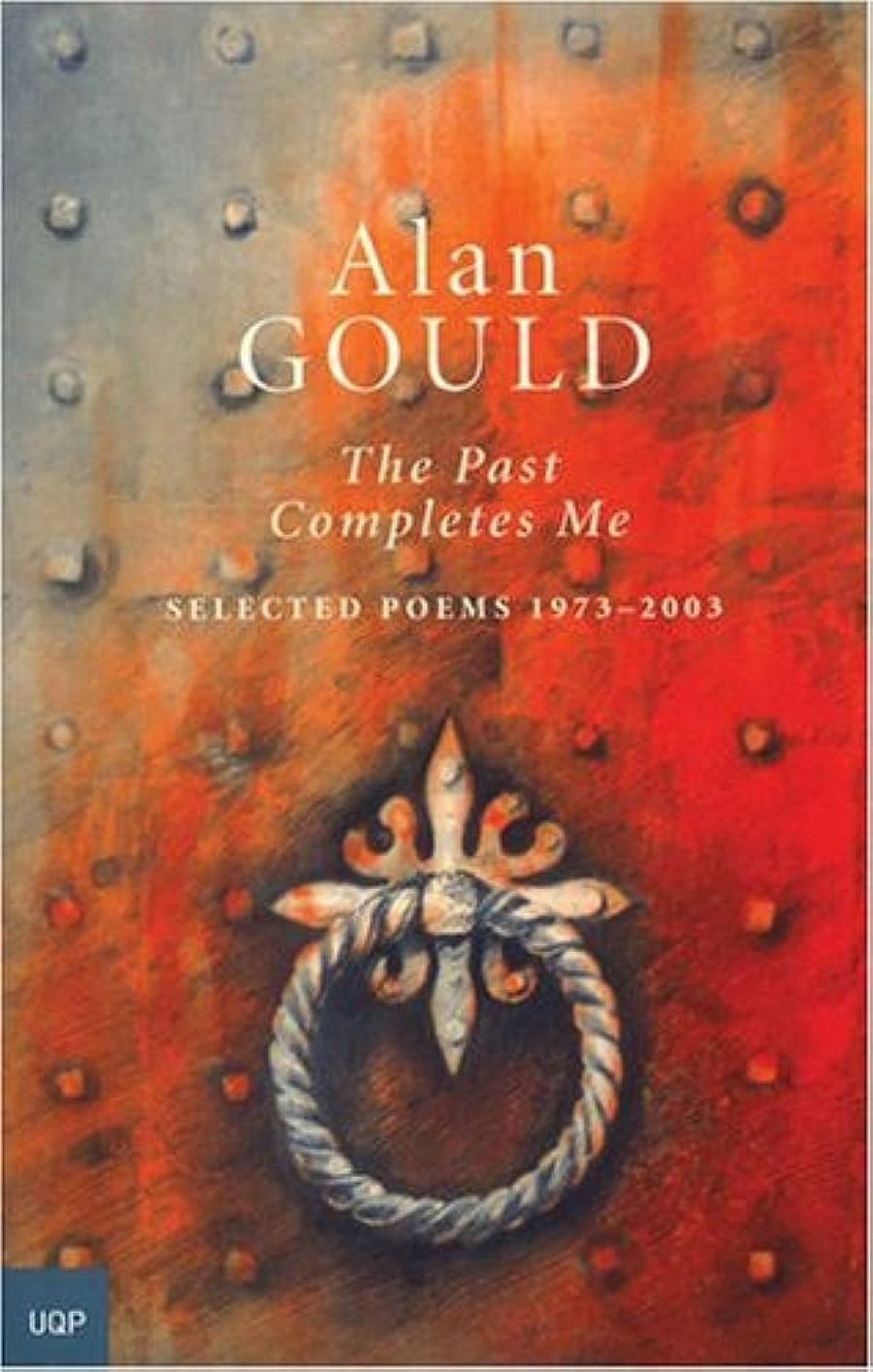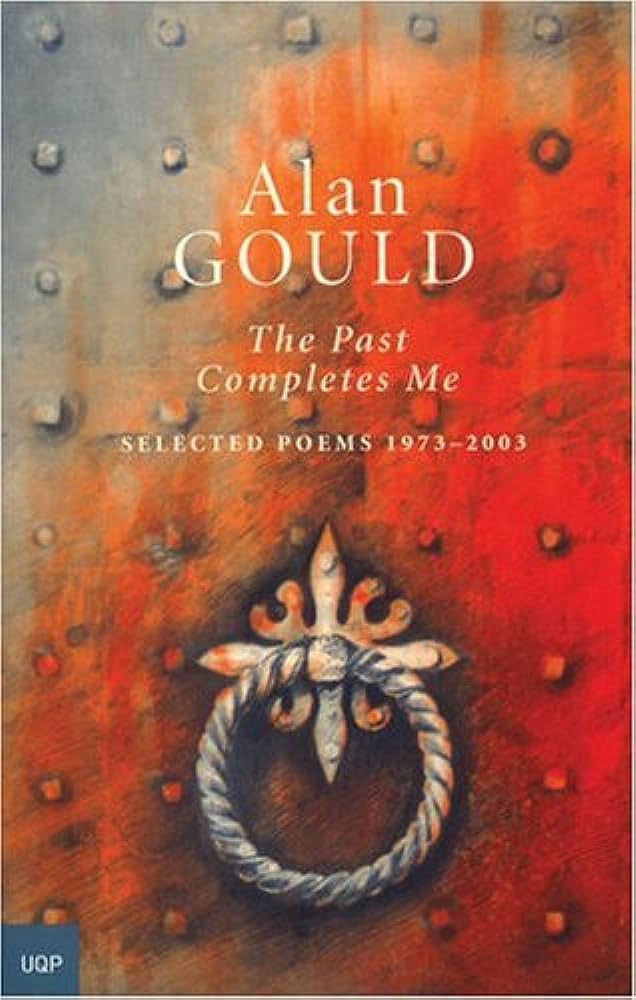
- Free Article: No
- Contents Category: Poetry
- Review Article: Yes
- Article Title: Gould’s shipping news
- Online Only: No
- Custom Highlight Text:
Alan Gould’s writing career began in the early 1970s when he was one of the ‘Canberra Poets’. This substantial selection covers thirty years and clearly shows both the achievements and the limitations of his work: I think the former outweigh the latter. One of the strengths of his poetry is a consistent vision; thirty years gives the opportunity for that to be explored in all its ramifications. The centre of this vision is history or, in its unintellectualised form, the past. Almost all the poems relate to this in one way or another. Even the later poems of humour or love or the waiting for a child’s birth are framed by the overriding meditation on the past, so that, though they are expressions of an intimate personal life, it is one conducted on the surface of the immense, slowly changing patterns of history.
- Book 1 Title: The Past Completes Me
- Book 1 Subtitle: Selected poems 1973–2003
- Book 1 Biblio: UQP, $22.95 pb, 285 pp
- Book 1 Cover Small (400 x 600):

- Book 1 Cover (800 x 1200):

There are many poems that face up to the issues squarely. Perhaps the most important of these is ‘A Vagary for Philip Mead’ from the 1986 collection, The Twofold Place. The tone is casual, recalling the study of history at school, but broaches the essential paradox that it is something that we are both within and outside. At the same time, it provides a locus for the distinctly modern ache for the absolute, for a ground of reality. Thus the yearning for an external view of the completeness of past reality has an almost religious intensity. But history is also explored from less cosmic perspectives. A fine poem, ‘History of the Log Dwellers’, after describing the extraordinary habit of building entire cabins on the great rafts of logs that were floated down the St Lawrence River in the eighteenth century, tells us that we know of this only because an English seaman, John Nicol, later, when short of money, collaborated with another man to produce a book of memoirs. The weird practice of living on logs survives the entropic processes of historical forgetting because of the observation of one man whose remembrances are preserved through the chance meeting with another.
Is history too abstract an obsession for good poetry? It certainly leads to a tone of remorseless high-seriousness. But there are some elements in Gould’s work that bend it towards something valuable. Firstly, there is his passion for eighteenth- and nineteenth-century shipping. This has all the detail of the loving obsessive and operates as an example of a kind of micro-history, where the devotee’s aim is to rediscover and recreate something that is not the self: ‘Just / to conjure yesterday and presto! glows / a molten portion we’d like to stand back from …’
The backbone of this Selected Poems is actually made up of the five sequences of poems about sailing that appear spaced throughout this book. At first, one has the impression that these get gradually more religious and thus are inclined to reduce the sea by making it a symbol for a non-theologically conceived divine, but I think, on rereading, that that is an illusion. The first poem of the first sequence establishes the essential conception of the sea as an embodiment of all the forces (history, the divine, the natural) that are beyond human scale and beyond human control.
The final sea poem is one of the best. Taking its origins from a photograph, it describes a clipper captain (one L. Colcord) standing at the stern, watching the sails. ‘A slight man cast upon space’, he represents all of us though we can only aspire to his grace: ‘I think how humans are not angels, yet / you can catch in them the angel moment, // the high confidence, whole as all imagining …’
Secondly, the poetry often focuses on the personal situation of the poet himself, fighting entropy, balancing memory and imagination: poems such as ‘Quick Prayer’ deal with plain ethical issues that arise from this position. And thirdly, there is a strong dramatic sense. It is something that can’t be faked but is obvious when it occurs. An early set of sestinas devoted to the Norse settlement of North America lives as poetry exactly because of its instinctive sense of the dramatic. Its characters, as the author’s note explains, are balanced at one of history’s hinges. They move out into the unexplored reaches of Vinland but simultaneously (since the Scandinavian world was Christianised just before the Vinland voyages) they move into an alien conception of the world. There is, as the sources show, all the difference in the world between Eric the Red’s Viking ethics and the Christian ethics of his wife, Thorbjorg, and the luminous Gudrid, Thorbjorn’s daughter.
Around the publication of Momentum in 1992, if this selection is at all representative, there is a distinct change in Gould’s poetry. The themes do not change greatly, but the poetry essays a lighter tone. I read this as a response to the downside of the obsession with history: the unrelentingly serious tone. I don’t think this transition is successful – there is too much hamminess about it. There is also a bluff maleness in the poems, but since so many deal with the sea and mercantile sailing ships, that comes with the territory: it is, with a few interesting exceptions, a woman-free zone.


Comments powered by CComment